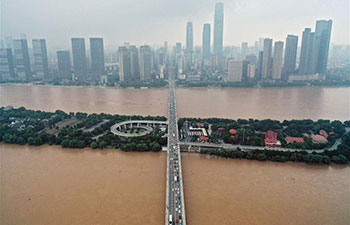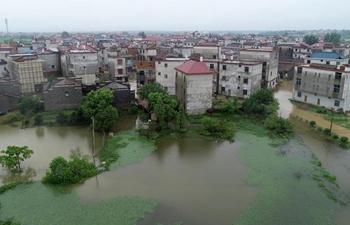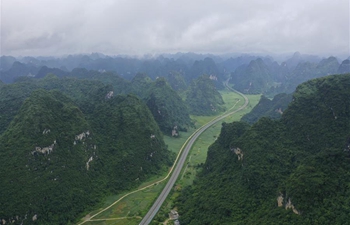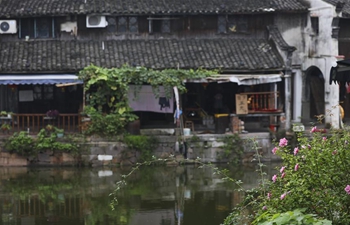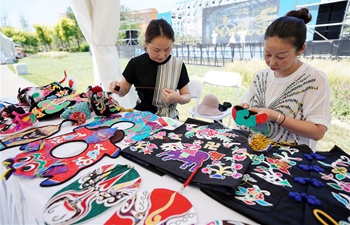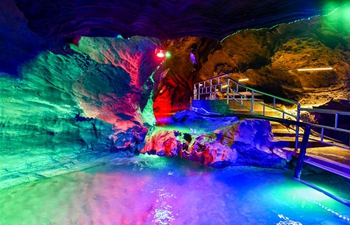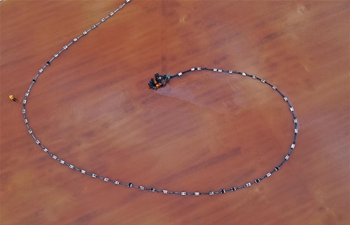
New governor of Nineveh Mansour al-Mar'eed speaks to Xinhua in an interview at his office in Nineveh province, Iraq, July 2, 2019. The governor of Iraq's northern province of Nineveh called on the Chinese companies to take part in the reconstruction of its capital Mosul. (Xinhua/Khalil Dawood)
MOSUL, Iraq, July 6 (Xinhua) -- The governor of Iraq's northern province of Nineveh called on the Chinese companies to take part in the reconstruction of its capital Mosul.
"We invite Chinese companies to come and work in Mosul, and I personally know the capabilities of Chinese companies," Mansour al-Mar'eed, the governor of Nineveh province, told Xinhua in an interview recently in the city.
"All the sectors in Mosul are open to Chinese companies, including housing, agricultural, oil and commercial sectors and any other field, all the doors are open to them," al-Mar'eed said.
Al-Mar'eed said that the security situation in Nineveh province is good and he promised that the authorities "will give them (Chinese companies) the support they need."
He encourages the Chinese companies to come to Mosul for the big opportunities now to work in the city, noting that "maybe soon the competition will be fierce because many world companies are expected to come."
"The Chinese are working in different sectors in central and southern Iraq, and we welcome them in Nineveh province," al-Mar'eed said.
A large part of Iraq's northern province of Nineveh, including its capital Mosul, has came under Islamic State (IS) militants control since June 2014, when government forces abandoned their weapons and fled, enabling IS militants to take control of parts of Iraq's northern and western regions.
On July 10, 2017, Iraq formally declared Mosul's liberation from the IS after nearly nine months of fierce fighting to dislodge the extremist militants from Mosul, which was their last major stronghold in Iraq.
As the result of the fierce battles, Mosul needs billions of U.S. dollars for reconstruction because the devastation ranged from 10 percent in some of its districts to 100 percent in the old city center, where some 11,500 buildings were destroyed.
The fierce clashes also destroyed the city's power stations, as well as infrastructure, including roads, bridges, water supply, hospitals and schools, according to provincial officials.




